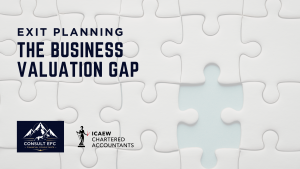Starting a business demands near-constant focus, but keeping your accounts clear never sits on the sidelines. For founders, money moves quickly, and every decision can shape tomorrow’s survival or growth. Good accounting isn’t just about recording costs; it helps you spot risks early, plan cash confidently, and build trust with investors or banks.
The right approach gives you more than tidy records: it powers daily choices and tracks progress towards long-term goals. If you’re a founder worried about getting it wrong, you’re not alone. Setting things up straight from day one lays the groundwork for fewer headaches and more freedom to focus on what matters most – growing your business.
Laying the Foundation: Setting Up Accounting for a Startup
Getting your accounting in order from the beginning sets your startup on a clear path. With so much riding on every penny, a strong system stops mistakes before they snowball and helps you make sound decisions with real numbers. Think of this stage like building solid footings for a house; everything else stands safer as a result. Here’s where to start when setting up your accounting foundation.
Choosing the Right Accounting Method
Startups need to decide between cash accounting and accrual accounting. Cash accounting tracks money as it comes in or goes out. It’s easy to understand and works well for small or uncomplicated businesses. Accrual accounting records income and expenses as they happen, not when the cash moves. This gives a fuller picture and suits startups planning to grow or look for investment.
Most founders stick to cash accounting at first, but if you expect quick growth or need to impress lenders or investors, consider accrual from day one.
Selecting an Accounting System or Software
Manual record-keeping and spreadsheets can get messy. Modern accounting software makes tracking money much simpler. Look for features like invoicing, bank feeds, and easy reporting. Top picks include:
- Xero
- QuickBooks Online
- FreeAgent
These options are cloud-based, so you can see your books wherever you are. Software also reduces the risk of human error and helps with compliance.
For more information on popular software choices, Small Business UK offers an updated guide to the best accounting software for startups.
Opening a Business Bank Account
Combining business and personal funds is a recipe for confusion. Setting up a separate business bank account keeps everything tidy and helps when filing tax returns or applying for loans. Many high-street banks and new digital banks offer accounts tailored for startups.
Benefits of a business account include:
- Easy tracking of company income and spending
- Fewer headaches at tax time
- Simpler audit trails if needed
In the UK, MoneySuperMarket’s business bank account comparison helps find options that fit your needs.
Putting a Simple Chart of Accounts in Place
A chart of accounts is a list of all the categories your startup will use for money coming in and going out. These categories might include sales, different types of expenses, assets and liabilities.
Example Chart of Accounts Table:
| Category | Description |
|---|---|
| Revenue | All customer sales |
| Cost of Goods Sold | Expenses for products or services |
| Operating Expenses | Rent, utilities, subscriptions |
| Payroll | Staff wages and PAYE deductions |
| Assets | Cash, equipment, stock |
| Liabilities | Loans, credit cards, VAT owed |
Keeping this list clear from the start makes reports cleaner and budgeting easier.
Defining Who Does What
In a small team, it’s easy to let accounting slip through the cracks. Spell out who is responsible for entering transactions, invoicing, chasing payments, and checking the numbers. Assign tasks so that nothing gets missed and owners or founders still review the books regularly.
You don’t need a full-time accountant from day one. Still, regular check-ins and smart delegation keep finances healthy.
Keeping Paperwork and Digital Records Organised
Receipts, invoices and bank statements pile up fast. Go digital as much as possible. Use apps to snap receipts and link them to expenses in your accounting software. Store digital copies in a secure cloud folder.
Simple steps to stay organised:
- Save receipts as soon as you get them
- Upload or scan docs weekly
- Keep digital folders sorted by month and type
Your future self (or accountant) will thank you come tax season.
Setting up these building blocks right away gives your startup a clear, stress-free start and helps avoid costly slip-ups down the line. Focusing on tidy systems from day one makes it much easier to spot problems, seize chances, and share your progress with others.
Keeping Track: Records Every Startup Must Maintain
The moment you start trading, every penny in and out leaves a trail. Good record-keeping is about more than ticking boxes for the tax man; it is the backbone of a healthy business. Keeping records up to scratch makes tax time less stressful, supports day-to-day planning, and proves your credibility to partners and investors. Have you checked if you’re keeping everything required by law? Here’s what every founder should know about startup records.
Key Business and Company Records
Startups must keep certain documents on file for legal and operational reasons. These aren’t just forms for admin’s sake; they prove you are running your company responsibly and help if you ever need to show your track record. Required company records include:
- Director, shareholder, and secretary details: Names, addresses, appointment and resignation dates.
- Shareholder votes and resolutions: All company decisions and meeting results.
- Promises to repay loans (debentures) and agreements for company indemnities.
- Shares and financial pledges: Transactions around company shares and major loans or mortgages.
- Register of People with Significant Control (PSC): Anyone who owns more than 25% shares or has significant say in company direction, as detailed in this government summary of company and accounting records.
If you store these records at a location other than your registered office, Companies House must be informed.
Essential Accounting Records
Every pound your business touches needs to leave a paper (or digital) trail. Accounting records must be thorough and detailed so you can prepare up-to-date reports or face HMRC inspections with confidence. You must keep:
- Income and receipts: All money received, including grants or government support.
- Spending and purchases: Company costs, supplier bills, and staff expenses.
- Assets and liabilities: What your business owns (cash, equipment) and owes (loans, unpaid bills).
- Stock records: Value of inventory at year-end and how you calculated it.
- Records for goods traded: All goods bought or sold, who you dealt with (unless you run a retail business).
- Supporting documents: Receipts, invoices, contracts, bank statements, sales books, purchase orders, and till rolls.
Many founders overlook supporting material like delivery notes, petty cash slips, or internal spreadsheets, but HMRC expects detail. Missed receipts or chaotic folders can mean lost business deductions or trigger fines.
For a practical breakdown of must-keep financial paperwork, read the guidance on how to do small business accounts in the UK.
Click here to arrange a free 1hr consultation with a qualified expert at Consult EFC.
Payroll, VAT, and Expenses Documentation
Paying staff, claiming VAT, and reimbursing expenses all come with their own set of paperwork essentials. Startups must:
- Keep payroll records: PAYE, National Insurance, tax codes, and staff payment details. Store staff wage documents for six years, although HMRC may request up to three years specifically for payroll investigations.
- Track VAT records: If your business is VAT registered, keep copies of all VAT invoices, HMRC submissions, and working papers showing your VAT calculations.
- Document all expenses: Keep scanned or original receipts for every cost you claim on your tax return, even low-value items.
Record Retention and Secure Storage
Most UK startups are required to keep accounting and company records for six years from the end of the financial year to which they relate. If your business deals with an asset expected to last longer, spans several tax periods, or submits a tax return late, more time may be required. Digital and cloud storage is accepted, but keep regular backups and secure access.
A quick glance at retention essentials:
| Record Type | Minimum Retention Period | Special Notes |
|---|---|---|
| Accounting records | 6 years | From end of financial year |
| Company records | 6 years | Longer if transactions span periods |
| Payroll | 3 years (minimum) | For HMRC payroll queries |
| Personnel files | 7 years after leaving | Employee and wage history |
| Insurance policies | 3 years after expiry | Data Protection Act 1998 rule |
| Self-employed records | 5 years after deadline | If you file Self Assessment |
Backing up your data and using accounting software makes it simpler to stay compliant and retrieve records quickly if HMRC checks in. Handy tips and retention rules are outlined in this guide to how long you should keep accounting records.
What If You Lose Your Records?
Lost, stolen, or destroyed paperwork happens. In these cases, make your best effort to recreate what you can, notify your Corporation Tax office, and include a note in your tax return. Trying to hide gaps will cause more pain later than reporting the issue openly.
Getting your records right from the start isn’t just about avoiding fines. It’s your safeguard and peace of mind, so you can spend more time growing the business and less time in the filing cabinet.
Essential Startup Accounting Tasks and Key Dates
Getting your numbers right from the start is about consistency and timing as much as good habits. Your startup’s most pressing accounting tasks repeat through the year and are linked with firm deadlines, set by HMRC and Companies House. Missing these can cost real money, whether it’s fines or missed reliefs. Knowing the main jobs and key dates helps you stay in control and keeps your business ready for growth.
Bookkeeping and Reconciling Your Accounts
Day-to-day bookkeeping is the core of all your business records. Track sales, purchase invoices, receipts, and payments. This habit feeds into every other financial task and protects you from painful surprises.
- Enter transactions weekly to spot errors before they grow.
- Reconcile bank accounts monthly so your records match reality.
- Regularly review outstanding invoices and chase late payments.
Staying on top of bookkeeping gives you a full view of cash available and which areas bite into profit.
Payroll and Staff Costs
If you pay yourself or any team member, payroll comes with strict rules and recurring jobs. You will need to:
- Process employee payslips and deductions every pay period (weekly or monthly).
- Submit payroll information to HMRC using Real Time Information (RTI) at or before each pay date.
- Track pension contributions and staff benefits as required.
Timely payroll prevents fines and keeps your staff happy. A helpful summary is given on what needs reporting to HMRC in this payroll guidance for employers.
VAT Returns and Payments
If your taxable turnover hits the VAT threshold, you must register and begin new regular reporting tasks. These include:
- Recording VAT on all sales and purchases.
- Filing VAT returns (usually quarterly, but sometimes annually).
- Paying VAT owed by the deadline after each accounting period.
The VAT Annual Accounting Scheme guide breaks down payment schedules and how deadlines work.
Filing Annual Accounts
Every limited company, even if not trading, must prepare and file accounts with Companies House each year. This involves:
- Completing statutory accounts showing your business’s profit, loss, and balance sheet.
- Filing annual accounts within nine months of your company’s financial year-end.
- Double-checking deadlines against your company’s year-end date to avoid late penalties.
An exact timeline for these filings can be found in the official government guidance.
Paying Corporation Tax and Filing Company Tax Returns
After your annual accounts are done, you must:
- Calculate corporation tax owed and pay it within nine months and one day after your financial year ends.
- File a company tax return (CT600) within 12 months of the year-end.
For startups using a different year-end date from the tax year, mark out key dates in advance to avoid any confusion.
Key Accounting Deadlines Table
The best way to avoid fines is by diarising the essential submissions and payments. Here’s a summary table with common deadlines for UK startups:
| Task | Deadline |
|---|---|
| Annual accounts | 9 months after financial year-end |
| Corporation Tax | 9 months and 1 day after financial year-end |
| Company tax return | 12 months after financial year-end |
| VAT return & payment | Usually 1 month and 7 days after period end |
| Payroll RTI reporting | On or before each pay day |
| Confirmation statement | Every 12 months from last filing |
Tools like the yearly UK Accounting Calendar are handy for tracking each date across the year.
Other Essential Accounting Tasks
Some tasks aren’t tied to set deadlines but still matter. These include:
- Updating your chart of accounts if your business grows or pivots.
- Reviewing spending against your budget each month.
- Backing up digital records regularly to stay safe from data loss.
Make a regular checklist for these jobs, and you’ll keep one step ahead of the confusion that so often hits fast-growing startups.
Planning your accounting tasks around fixed dates allows you to act with confidence. Timetables and habits ensure compliance, make tax time less of a panic, and leave you better placed to focus on scaling the business.
Planning for Growth: Using Accounting to Guide Decisions
Planning for business growth takes more than gut instinct or ambition. Accounting gives you the facts to make smart, timely choices and keeps your startup firmly grounded as you reach for new targets. With reliable numbers in hand, founders spot bottlenecks, forecast profits, and prepare for changes before they hit. This planning stage is where accounting moves from a back-office chore to a key driver of progress.
Setting Clear Growth Goals Backed by Data
Growth starts with defined targets. Whether you’re aiming for increased sales, launching new products, or expanding your team, clear goals matter. However, only numbers can show if you are on track.
- Use financial statements and simple metrics like gross profit or monthly recurring revenue to monitor progress.
- Budgets and forecasts give your goals structure, while regular reviews show where reality matches plans – or falls short.
- Pair revenue goals with spending controls to avoid growing costs faster than your income.
Many startups benefit from simple monthly reporting dashboards. These highlight cash flow, costs, and trends all in one place. Founders who watch their numbers spot warning signs early and can adjust course quickly. For more on these tools, see this detailed piece on the power of financial dashboards for real-time reporting.
Budgeting and Forecasting: Building Your Roadmap
A budget is your financial sat nav. It maps out where you expect money to come in and go out over weeks or months. Forecasting builds on this by adding your best estimate of future growth, costs, or investment needs.
- Plan for different scenarios: best case, worst case, and somewhere in between. This avoids nasty shocks.
- Update your budgets and forecasts regularly. Adjust as your business learns, pivots, or scales up.
- Use past results as a base, but build in new projects, price changes, or market shifts.
Good forecasts help decide when to hire, when to expand, or when to scale back. This approach helps keep cash in hand and opens up space to invest when the time is right. Useful strategies and steps can be found in this startup financial planning guide with templates.
Making Confident Investment Decisions
Each big move, such as buying new kit, hiring staff, or launching a new service, comes with risk. Accounting lets you weigh up returns versus the outlay.
- Compare the expected extra profit to the cost. If the numbers don’t stack up, wait or reconsider.
- Track ‘return on investment’ (ROI) for new outlays. If your ROI is low, rethink your spend next time.
- Plan for ‘what if?’ events, like losing a big customer or rising utility prices.
Accounting gives you a clear view so you can act rather than react. You’ll know if you can take on a loan, justify new spending, or need to pause.
Funding and Investor Communication
Growing usually means needing more money. Investors, banks, or grant makers all want clear proof that your startup is healthy – and that their cash will be safe.
- Keep up-to-date records and clear forecasts for any funding pitch or bank chat.
- Good accounts help answer tough questions from lenders or investors.
- Transparent numbers build trust and help you stand out from the crowd.
For an in-depth overview of what investors expect in terms of numbers and planning, this accounting for startups guide is a practical resource.
Regular Review: Accounting as Early Warning
Great founders know that reviewing numbers isn’t a once-a-year task. Schedule monthly or quarterly review sessions to:
- Check if projects and products are earning what you hoped.
- Spot cash flow issues before they turn into crises.
- Find extra savings or growth ideas.
Treat your financial reports like a car dashboard – if a warning light flashes, don’t ignore it. Fast action beats wishful thinking every time.
Putting reliable accounting at the heart of your planning makes the difference between hoping for growth and building it step by step. By setting clear goals, forecasting, making wise investments, and reviewing regularly, you’ll guide your startup into its next stage with confidence.
Conclusion
Strong accounting is about more than passing tax checks or ticking boxes. It gives founders reliable facts for daily choices and secures the trust of lenders and partners. Tidy records, a smart system, and regular checks keep stress low and open up more time for real growth.
You do not need to have all the answers yourself. Start with small steps, try to stay organised, and ask for expert help when you need it. Good habits today mean peace of mind tomorrow and the confidence to grow your business the way you want.
Thanks for reading – if you found this guide useful, please share your own lessons or questions below.
Book your free 1-hour consultation today by emailing info@consultEFC.com. Our experienced team is ready to discuss your goals and provide tailored guidance to help your business grow.






